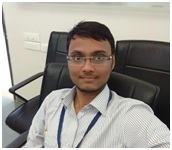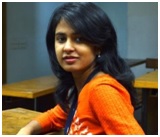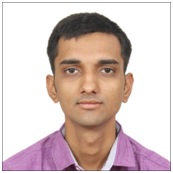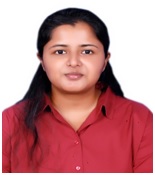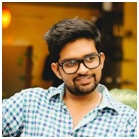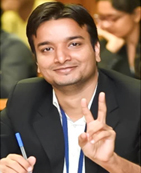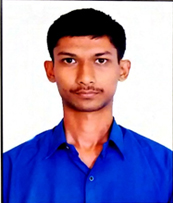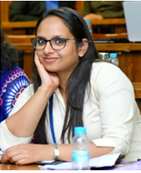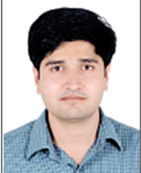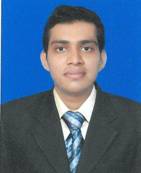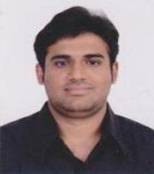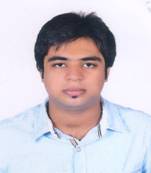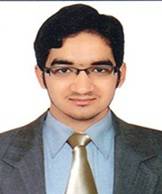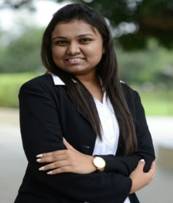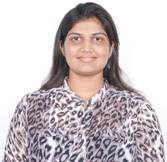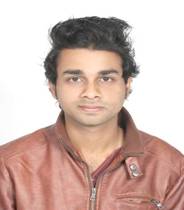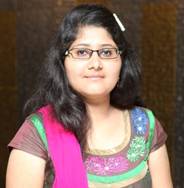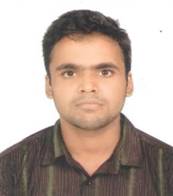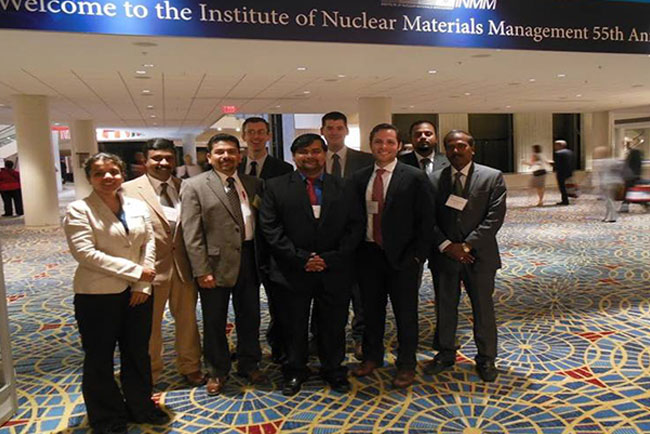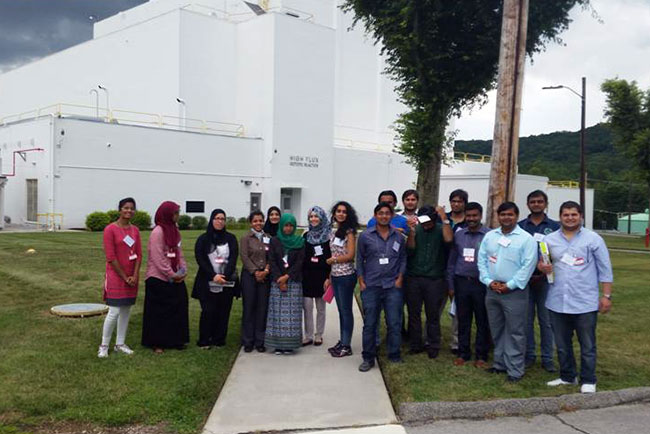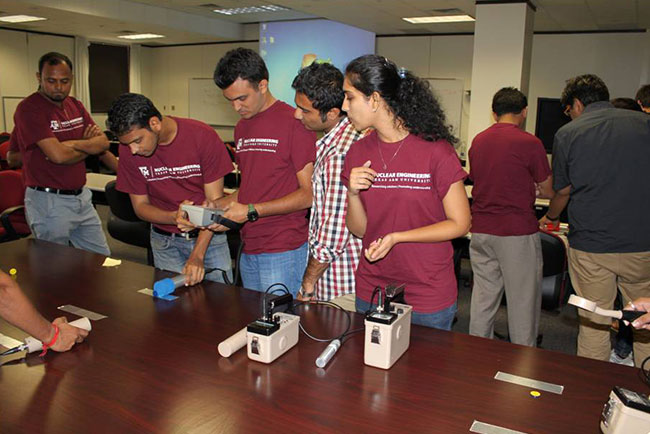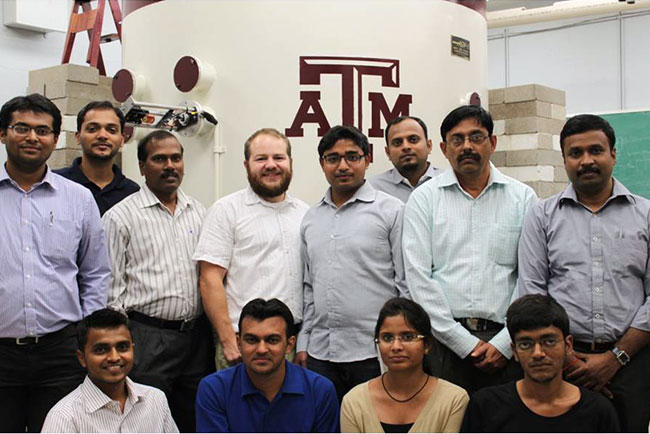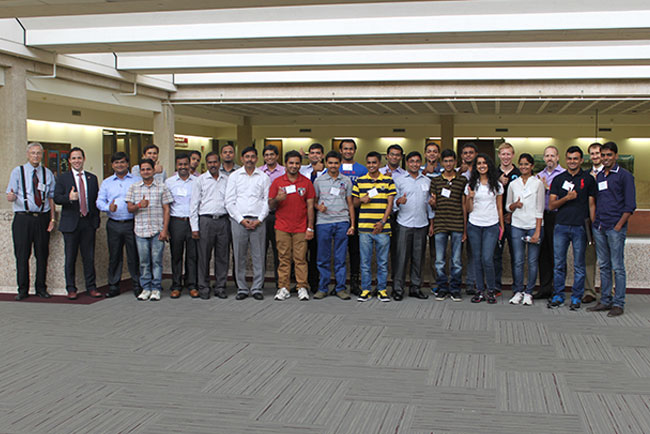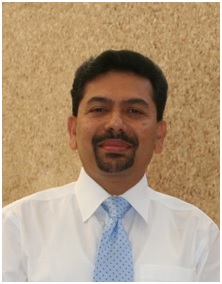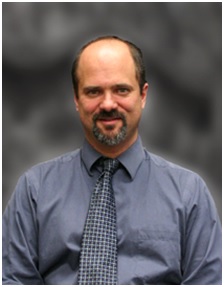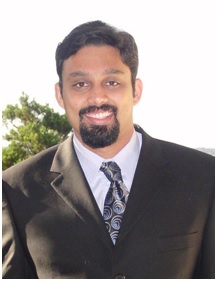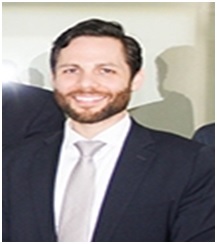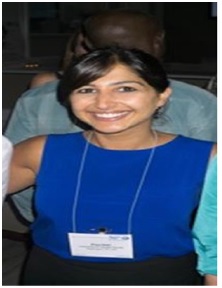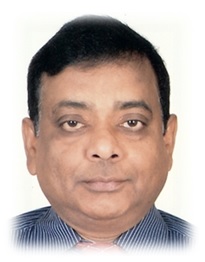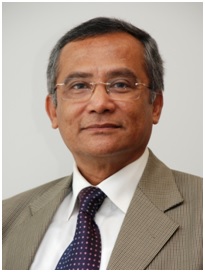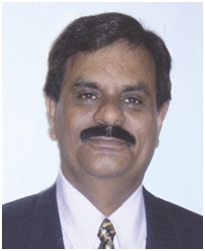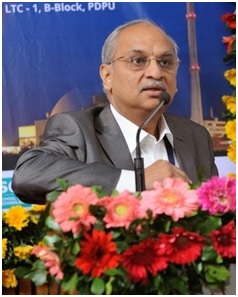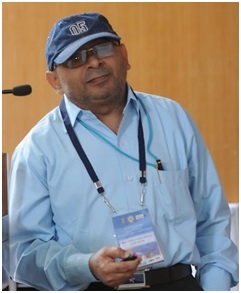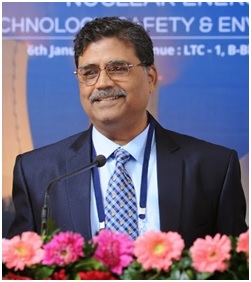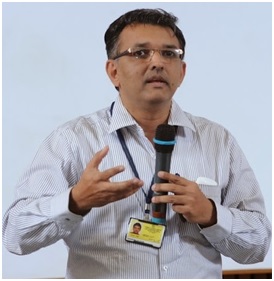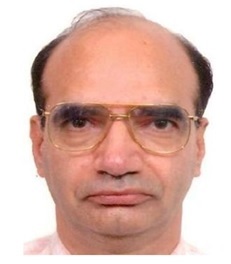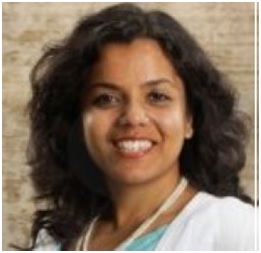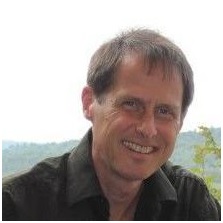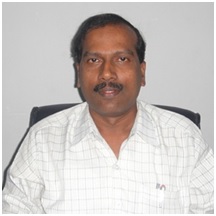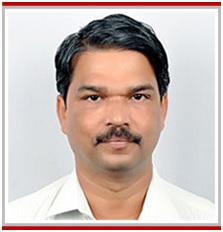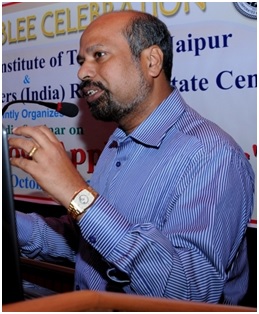NEWS
- 27th February, 2020 - One Day Seminar on Power and Non-power Application of Nuclear Technology
- 29th - 31st May, 2018 - Workshop on Personnel Reliability Program in Nuclear Safety and Security in Collaboration with Texas A&M University and Oak Ridge National Laboratory
- 20th February, 2018 - An Expert Lecture on "Technology Vision 2035" by Prof. Prabhat Ranjan, Executive Director, TIFAC
- 26th - 27th December, 2017 - M.Tech. students visited Fast Breeder Test Reactor, IGCAR
About Nuclear Engineering
The Department of Nuclear Science & Technology (DNST) offers 2 years M.Tech. course in Nuclear Science & Technology.
In 2017, the course is reorientedand introduces more science base subjects of nuclear energy, particularly in the area of radioisotopes and applied radiation sciences in the field of food and agriculture, medicine and healthcare and characterization and testing of materials. In fact, the impact of nuclear energy in this non-power sector is substantially larger than in the sector comprising nuclear power both in terms of revenues yielded and employment opportunities in India and abroad. In addition, the course would also include subjects like “Nuclear Safety & Security” and “Nuclear Materials Engineering” in great details.
The department operates by highly skilled faculties who passed out form Foreign Universities and IITs. Department arranges lectures by highly experienced visiting faculties to give in-depth understanding on subjects. DNST also arranges industrial visit to different nuclear research institutes and Industry to give exposure to students regarding present technology and to understand the trends in research and development of nuclear science engineering.
Objective
Vision & MissionThe vision of the Department of Nuclear Science and Technology is to provide world class educational opportunities for graduate students interested in advancing the frontiers of nuclear science and engineering and in developing power and non-power applications of nuclear technology for the benefit of society and the environment. We prepare our students to make contributions to the scientific fundamentals of nuclear fission, fusion and nuclear radiation; to the sustainability of Food, Energy & Water (FEW) security, without degrading the environment; to nuclear safety, security and proliferation –resistance of dual use nuclear materials; to use of nuclear radiation and radioisotopes in food and agriculture, medicine and healthcare , non-destructive evaluation of materials in industry and in research; and to the integration of nuclear systems into society and the natural environment.
The mission of the Department of Nuclear Energy is to:
- Produce high quality nuclear and radiological engineering graduates in order to help meet the manpower needs of our state, region, nation and the international community.
- Conduct nuclear and radiological engineering related research to help meet the needs of society.
- Perform service for industry, government, professional organizations, and the public in areas related to nuclear and radiological engineering.
Program Benefits and Career Options
- Careers in laboratories functioning under the Department of Atomic Energy (DAE)
- Nuclear Reactor Operations/ Design Expert in Nuclear Power Plant
- Industries using non-destructive techniques for mechanical analysis of materials
- Nuclear Radiation Safety and Environmental Management
- Consultancy
These recent (in 2017) changes in curriculum will enhance the employment opportunities as “Nuclear Radiation Engineers” in SMEs in private sectors dealing with:
- Radiation induced mutation in nuclear agriculture,
- Food irradiation and preservation,
- Sterilization of hospital products for medical procedures,
- Radiopharmaceuticals for diagnosis and therapy,
- Non-destructive evaluation of welds and in – service inspection of structures based on nuclear techniques like gamma radiography and image analysis,
- In Multi-specialty hospitals and diagnostic centers dealing with radioisotopes as “health & safety officers”.
The course will also train and promote self-employment as “start-ups” in nuclear agriculture, food irradiation and preservation, radio-pharmaceuticals and non-destructive evaluation of materials and structures.
History

The School of Nuclear Energy was established as a constituent School of Pandit Deendayal Energy University in October 2009. Dr. A.P.J. Abdul Kalam, Former President of India and world-renowned Scientist, while addressing the maiden convocation ceremony of Pandit Deendayal Energy University as Chief Guest in May 2009 said that India’s self-reliance in energy can only be achieved by capacity building of the young people entering the energy sector and that the Energy independence has to be achieved through three different sources namely renewable energy, electrical power from nuclear energy and bio-fuel for the transport sector. India’s present Prime Minister Shri Narendra Modi who presided this convocation ceremony as Guest of Honour then advised the Board of Governors of PDEU to launch educational programmes to build human resource to harness solar energy and nuclear energy to attain energy independence for India. Taking this into account, PDEU started M.Tech Programme in Nuclear Engineering in October 2009 by establishing School of Nuclear Energy.
The Inauguration ceremony for the foundation batch of M.Tech Programme in Nuclear Engineering was held on 9th October, 2009 in the presence of Shri Prabhat Kumar, Managing Director, BHAVINI, Nuclear Power Corporation of India Limited, chief guest for the function and Shri D.J. Pandian, IAS, Former Managing Director, Chief Secretary of Gujarat State Petroleum Corporation at present. The function was attended by various senior scientists who have made major contributions to India’s Nuclear Energy Programme.
The chief objective of this two year residential M.Tech programme in Nuclear Engineering is to create a talent pool of trained nuclear engineers towards further strengthening India’s Nuclear Energy initiatives. The course was devised in consultation with senior engineers, scientists and sector analysts from the nuclear energy domain.
Aftermath of the Fukushima incident in December 2011, the School of Nuclear Energy was converted into a Department and made part of School of Technology in the year 2012.
Department Mentor

Dr. Chaitanyamoy Ganguly
Distinguished Professor,
Department of Nuclear Science and Technology,
Pandit Deendayal Energy University
Prof. Chaitanyamoy Ganguly is an eminent nuclear metallurgist who is well known in India and abroad for his pioneering R&D contributions in developing uranium, plutonium and thorium based nuclear fuels for thermal and fast reactors. He did his graduation and PhD in Metallurgical Engineering from Bengal Engineering College, Shibpur, University of Calcutta and is a postgraduate of BARC Training School, Mumbai. Presently, Dr Ganguly is Distinguished Professor at Pandit Deendayal Energy University, Gandhinagar. He has served the Dept of Atomic Energy for more than 35 years and has retired as Distinguished Scientist, Chairman & Chief Executive, Nuclear Fuel Complex at Hyderabad. He was former Head of Radio-metallurgy Division, BARC, Mumbai.
Dr Ganguly was also Director of CSIR - Central Glass and Ceramic Research Institute at Kolkata and served the International Atomic Energy Agency (IAEA) at Vienna, as Head of Nuclear Fuel Cycle and Materials Section. Dr Ganguly worked for Cameco Corporation, Canada, the largest uranium mining and nuclear fuels services company in the world as President of Cameco India. He was also Distinguished Visiting Professor at IIT Kanpur and BITS – Pilani, Goa. Dr Ganguly is a Humboldt Fellow and did his pre – and post-doctoral research on nuclear fuels at the Nuclear Research Centers at Karlsruhe and Juelich in Germany. He is author of more than 250 research papers and is a Fellow of the Indian National Science Academy, Indian Academy of Science, Indian National Academy of Engineering, Indian National Academy of Science, Institution of Engineers, Indian Institute of Metals and Indian Institute of Ceramics. He is the recipient of National Metallurgist Award of the Ministry of Steel and Mines, the Tata Gold medal of the Indian Institute of Metals, the MRSI Medal and the Vasvik Award. Dr Ganguly received the first Indian Nuclear Society Award from the Honourable Prime Minister of India in 2001 and was conferred the “Padmashri” in 2002 by the Honorable President of India.
Head of Department

Dr. Anurag Mudgal
HOD & Associate Professor
Mechanical, School of Technology
Email : Anurag.Mudgal@sot.pdpu.ac.in
Phone : +91-9429026498
The Department of Nuclear Science & Technology (DNST) was established in 2009 and its curriculum is focused on nuclear power generation, fission and fusion technology with nuclear plant safety. Also possibilities of non-power application including application of Radiation and Radioisotopes in Food, agriculture, medicine and Health Care are also covered in the syllabus.The Department has many international collaborations including Texas A&M University, USA for research and training especially on Nuclear Security.Nuclear department is a member of International Atomic Energy Agency, Vienna (Austria). On the basis of this membership the students visit for Joint ICTP-IAEA International School on Nuclear Security, Italy which is designed for early career professionals from developing countries and attend workshop on “Nuclear Security” in Asia, Europe and USA. These all training are fully funded by Partnership of Nuclear Security, USA.After completing M. Tech, the students opt their career in Nuclear Radiation Safety and Environmental Management, Consultancy, Ph. D in France, Germany, other European countries & USA. The Department offers M Tech degree in Nuclear Science and Technology and is open for almost all under graduate engineers from different backgrounds and masters in sciences. Coming era is for sustainable development that includes food security, clean water and air and energy security. I welcome you all to join this clean and green technology.
International Relations

Areas of Collaborations:
Faculty Development program, which will include:
• Exchange of Faculty for teaching and/or for collaborative research in area of nuclear energy and security.
• PDEU will provide local hospitality of the postdoctoral associate or senior Ph.D students of TAMU, who will visit PDEU to deliver a course of lectures on nuclear security, safeguards and non-proliferation.
• PDEU will send a faculty to visit TAMU during summer for the purpose of engaging in collaborative research.
Student Development program, which will include:
• Each institution will promote the enrollment of qualified undergraduate and/or graduate.
• Both institutes will work out joint degree program.
• 3-5 weeks exposure program for M.Tech, Nuclear Energy, PDEU cohorts in the M. Tech. Nuclear Energy program to spend two-three week summer laboratory experiences at TAMU and cooperating laboratories of the US Department of Energy.
INDUSTRIAL RELATIONS
PDEU signs MoU with BARC
MoU between BARC and PDEU exchanged on 25th March 2019 by Dr Pujari and Dr C Gopalkrishnan during the Two Day Conference and Exhibition on "Application of Nuclear Energy in Food & Agriculture, Water, Industry and Sewage treatment."

PDEU signs MoU with INSTITUTE FOR PLASMA RESEARCH Department of Atomic Energy GOI for joint research program.
Memorandum of Understanding between PDEU and IPR signed on 21 August 2015, it was discussed to have research interaction between IPR and PDEU officials to exchange the ideas on potential areas of collaborative research and to explore the possibilities to start a joint research program between IPR and PDEU.

World Nuclear Association
PDEU is member of The World Nuclear Association. The World Nuclear Association is the international organization that promotes nuclear energy and supports the many companies that comprise the global nuclear industry.
WNA membership encompasses virtually all world uranium mining, conversion, enrichment and fuel fabrication; all reactor vendors; major nuclear engineering, construction, and waste management companies; and the majority of world nuclear generation. Other WNA members provide international services in nuclear transport, law, insurance, brokerage, industry analysis and finance.
Today WNA serves its membership, and the world nuclear industry as a whole, through actions to:
- Provide a global forum for sharing knowledge and insight on evolving industry developments ;
- Strengthen industry operational capabilities by advancing best-practice internationally ;
- Speak authoritatively for the nuclear industry in key international forums that affect the policy and public environment in which the industry operates.
All WNA activities focus on objectives outside the scope of national and regional associations, intergovernmental organizations and the industry's reactor safety organization, WANO.
For more information, please visit: https://www.world-nuclear.org/
Contact Us
Mr. Manish Kumar, Assistant Professor
Mobile: 6350686653, 9983796427
Phone: +91-79-23275432
Mr. Vipin Shukla, Lecturer
Mobile: 9427963637
Phone: +91-79-23275339
Department of Nuclear Science & Technology,
1st Floor, E-Block, School of Technology,
Pandit Deendayal Energy University,
Raisan, Gandhinagar, Gujarat, India.
Phone: +91-79-23275437
Course Curriculum
The M.Tech. Nuclear Science and Technology course curriculum is prepared and continuously reviewed and upgraded, keeping employment opportunities in mind in consultation with leading experts from the Department of Atomic Energy (DAE), Government of India, nuclear industry, organizations involved in non-power applications of nuclear energy and experts in the field of nuclear safety, security and safeguards. The students spend a year in carrying out project work related to nuclear energy in DAE institutions and other private sector organizations having an active programme in nuclear energy. The students are exposed to training on nuclear safety and security in collaboration with DAE units and reputable overseas universities like the Texas A&M University, USA.
The curriculum focuses on the development of practical knowledge to make the students immediately productive in several laboratories under the Department of Atomic Energy. It also provides the theoretical fundamentals to prepare the students to undertake research programs.
| Semester - I | |||
|---|---|---|---|
| Sr. No. | Course Name | Credit | Hrs/WK |
| 1 | Introduction to Nuclear Physics and Engineering | 3 | 3 |
| 2 | Energy and Environment | 3 | 3 |
| 3 | Health Physics & Radiation Protection | 3 | 3 |
| 4 | Advanced Numerical Methods and Computer Programming | 4 | 4 |
| 5 | Advanced Numerical Methods Lab | 1 | 2 |
| 6 | Elective-I Radiation and Radioisotope Applications – I / Nuclear Instrumentation and Control | 3 | 3 |
| 7 | Radiation Measurement Lab | 2 | 4 |
| Semester - II | |||
|---|---|---|---|
| Sr. No. | Course Name | Credit | Hrs/WK |
| 1 | Nuclear Reactor Engineering | 3 | 3 |
| 2 | Nuclear Safety, Security and Safeguard | 3 | 3 |
| 3 | Nuclear Material and Nuclear Fuel Cycle | 3 | 3 |
| 4 | Nuclear Heat Transfer and Thermal Hydraulics | 3 | 3 |
| 5 | Elective-II Radiation and Radioisotope Applications-II / Design, Manufacturing and Testing of Nuclear Reactor Components | 3 | 3 |
| 6 | Thermal Hydraulics Laboratory | 2 | 4 |
| 7 | Successful Research Program Development | 2 | 2 |
| Semester - III | |||
|---|---|---|---|
| Sr. No. | Course Code | Course Name | Credits |
| 1 | MT611 | Seminar | 5 |
| 2 | MT612 | Project | 14 |
| 3 | MT613 | Industrial Training | 00 |
| Semester - IV | |||
|---|---|---|---|
| Sr. No. | Course Code | Course Name | Credits |
| 1 | MT621 | Seminar | 5 |
| 2 | MT622 | Project and Dissertation | 24 |
Course Curriculum Details
Laboratory
Radiation Measurement Laboratory
Radiation laboratory at DNST, PDEU offers basic facilities to the students for radiation measurement and handling. Laboratory has following instruments to perform the experiments:
- Geiger-Muller Detector Counting System
- Sodium Iodide (NaI) Scintillator Detection System
- Multi-Channel Analyser (MCA)
- Personal Computer with Inkjet Printer
- Alpha, Beta, and Gamma Reference sources of less than 0.1 micro curie


Nuclear Thermal Hydraulic Laboratory
Study of Nuclear Thermal hydraulics is important for the nuclear plant design and safety. The present Nuclear Thermal Hydraulics laboratory is developed to deliver hands-on experience in the fundamentals of NuclearThermal hydraulics to the students.
The laboratory includes experiments on:
- Critical heat flux measurement
- Heat transfer measurement in lagged pipe
- Thermal conductivity of liquids
- Two phase heat transfer
- Drop-wise and film-wise condensation

BOARD OF STUDIES
| 1 | Prof. Chaitanyamoy Ganguly | Chairman | Distinguished Professor & Advisor to DG , PDEU |
| 2 | Dr. Vishvesh Badheka | Member Secretary | Assoc. Prof & Head, DNST |
| 3 | Prof. B. S. Tomar | External academic member | Director , Radiochemistry & Isotope Group, BARC |
| 4 | Prof. Somnath Bhattacharya | External professional member | Director , Research Directorate Genetics and Plant Breeding Bidhan Chandra Krishi Viswavidyalaya, West Bengal |
| 5 | Mr. R. J. Patel | External professional member | Raja Ramanna Fellow, BARC Former Director, Reactor Design & Development Group, BARC |
| 6 | Mr Jagdish Patel | External professional member | CMD, Universal Medicap Ltd., Vadodara |
| 7 | Dr. D. S. Setty | External professional member | General Manager, Fuel, Nuclear Fuel Complex, Hyderabad |
| 8 | Dr. Subrato Mukherjee | External professional member | Head, FCIPT, Gandinagar |
| 9 | Mr. Ritesh Patel | External professional member | L&T Heavy Engineering, Hazira, Surat |
| 10 | Dr. Nisarg Patel | Internal academic member | Asst. Prof., DNST, PDEU |
SEMINARS/ PROJECTS
Students Project
- Mr. Vyom Desai is working on Characterisation of dissimilar weld joints of Copper to SS through Inconel transition using Orbital TIG Technique at ITER-India
- Mr. Rajat Rathod is working on Study of Neutron radiation damage in Elementary Semiconductor Devices at IPR
- Ms. Pranjali Mishra is working on Estimation of solid hydrogen pellet ablation rate in high temerature plasma at IPR
- Mr. Milaan Patel is working on Analysis of Reactor Piping for fatigue rachetting due to sesmic vibration at BARC
- Ms. Manisha Jha is working on Arm cortex microcontroller based portable radiation monitoring device at BARC
- Mr. Vivek Pachchigar worked on Development of Adherent Coatings on Al and Al-alloys by Electroplating at BARC
- Ms. Shivi Rao worked on Design and Development of Control system for Vacuum monitoring of a seal test Rig at IPR
- MR. Bharat Singh Rawat worked on Design and Development of 10kW Faraday Cup for Ion Beam Measurement at IPR
- MR. Chintu Sharma worked on Corrosion of SS321 Stainless Steel: Role of Sensitization, Stabilization, Delta ferrite and Sigma phase at BARC
- MR. Sanchit Sharma worked on Neutronics Mock up Experiment for Design Validation of Indian LLCB TBM Shield Module at IPR
Schedule
| Sr. No. | Activity | Date(s) of Event | Organizer |
|---|---|---|---|
| 1 | One Day Seminar On “Power and Non-power application of nuclear technology” | 27th February 2020 | Dept of Nuclear Science and Technology |
| 2 | Training Course on Nuclear Safety and Security | 4-6th September 2019 | Dept of Nuclear Science and Technology in collaboration with World Institute for Nuclear Security and LOS Alamos National Laboratory |
| 3 | Visiting Faculty Lecture by Dr. B S Tomar, Senior Former Director, Radiochemistry and Isotope Group, BARC Mumbai | 01st April 2019 | Dept of Nuclear Science and Technology |
| 4 | Conference and Exhibition on "Application of Nuclear Energy in Food & Agriculture, Water, Industry and Sewage treatment“ | 25 & 26thMarch 2019 | Dept of Nuclear Science and Technology |
Interdisciplinary Research
Collaborative Research Work with the Bredesen Center for Interdisciplinary Research and Graduate Education, University Of Tennessee, Knoxville
Characterization of B4C Surface Deposits on Al-6061 Alloy through Triplicate Monte-Carlo Analysis Recently developed surface composites have certain superior properties compared to metal matrix composites in terms of hardness, ductility and toughness. These characteristics extend their applications within the automobile, aerospace, and nuclear industries. Boron carbide surface deposited aluminum alloys have numerous applications in used nuclear fuel storage and material packaging and transport. Problems associated with the traditional production of these materials has led to the emergence of Friction Stir Processing (FSP), in which heat from friction and plastic deformation improve the micro-structural refinement, densification, and homogeneity of the surface deposit. This research is a joint effort between Pandit Deendayal Energy University and the University of Tennessee, and investigates the use of Al-6061/B4C surface composites produced via FSP for structural criticality control applications. The relative transparency of aluminum alloys to neutron radiation necessitates the addition of a neutron absorbing component. The B4C surface composite provides the required neutron absorption while maintaining the structural integrity of the Al-6061. A variety of thicknesses and configurations of the B4C surface composite were tested for their neutronic properties using three separate Monte Carlo neutron transport codes: OpenMC, MCNP6, and a third under development by the authors at Pandit Deendayal Energy University (PDEU). The surface composites were exposed to neutron beams in thermal, epithermal, and fast regimes and their neutron attenuations measured. The performance of this novel shielding material is compared to conventional borated aluminum alloys and existing boron carbide based neutron control elements.
Research
Prime motive of research mission in department is to create knowledge, technology, and ideas for the advancement of the society. The teaching and research programs in the department are well organized for interdisciplinary theme. Students at Department of Nuclear Science and Technology are currently doing projects in various DAE institutions like Institute for Plasma Research, Indira Gandhi Centre for Advance Research and ITER, India.
Research Projects
- Design of safety interlock system for accelerator based 14-Mev Neutron Generator
- Characterization of boron carbide particulate reinforced in situ copper, using Friction Stir Processing for manufacturing of Canister
- Reactor criticality computations in neutron transport theory using deterministic approach
- Design and Fabrication of 200 KW, 1 MHz and 100 KV isolated RF transformer for a Inductively coupled plasma source
- Onset of gas entrainment during quadruple discharge from a horizontal pipe through inclined & vertical branches with respect to horizontal branches
- Consequences of Gas Enrichment from a two phase region through inclined branches with respect to side branches during triple discharge
- Development of tomography code for emission profile reconstruction
- Friction stir processing for Surface modification of AL-6061/B4C surface composites for a Manufacturing of canister for Nuclear West Storage in Nuclear Industries
- Reactor criticality computations in neutron transport theory using stochastic approach
- Heat Transfer Analysis to study the cooling capability of core catcher assembly under fuel meltdown scenario in a fast reactor
- Radiation hardening of wireless sensor node for the deployment in zone-4 of nuclear reactor building
Staff


Faculty

HOD & Associate Professor
Mechanical, School of Technology
Email : Anurag.Mudgal@sot.pdpu.ac.in
Phone : +91-9429026498

Lecturer
DNST, Electrical, School of Technology
Email : Vipin.Shukla@pdpu.ac.in
Phone : +91-9427963637
Students
First Year Students Profile
|
Milaan Patel |
|
Manisha Jha |
|
Rajat Rathod |
|
Pranjali Mishra |
|
Vyom Desai |
|
Vivek Pachchigar |
|
Sanchit Sharma |
|
Bharat Singh Rawat |
|
Shivi Rao |
|
Chintu Sharma |
Second Year Students Profile
|
JayeshAshokkumar Gupta |
|
Vrushank Joshi |
|
KushalPareshkumarModi |
|
Bhatt Apurv Kumar Yogeshbhai |
|
Mili Patel |
|
DishaVekaria |
|
MohitKoshti |
|
Patel Rupee Sunilkumar |
|
Ritwik Vyas |
Testimonials
“Pandit Deendayal Energy University has been a great contributor towards the development of my personality over the past year. By participating in the international summer school conducted by Karlsruhe Institute of Technology (Germany), I have established my leadership, team skills and have also been able to advance these skills to whole new augment level. The infrastructure of PDEU, one of the finest in the state of Gujarat, which stands out the most! The professors here make the university what it is today. With an attitude of being ever ready to help, and not only delivering classroom teachings, but also providing the students with real-time case studies and hands-on industry experience with field project works, they are the pillars of the learning gained from this esteemed university. And this is a treasure for life!”
- Jeet Patel, Student 2017-19
“The Department of Nuclear Science and Technology at PDEU has the finest faculty. The faculty is very helping and supportive and also very encouraging. I was encouraged by the faculty to attend an International Conference on Isotopes in Doha, Qatar, also the travelling and registration expenses were borne by PDEU. The learning experience has been great so far!"
- Aditya Chincholkar, Student 2017-19
Alumni
2016-2018
| Name | Affiliation |
|---|---|
| Milaan Patel | Research Scholar (Phd.) Institute for Plasma Research, Government of India, Gandhinagar, Gujarat. |
| Vyom Desai | Research Scholar (Phd.) Institute for Plasma Research, Government of India, Gandhinagar, Gujarat. |
| ManishaJha | Research Scholar (Phd.) Institute for Plasma Research, Government of India, Gandhinagar, Gujarat. |
| Rajat Rathod | Business using Radiation Technology. |
| Pranjali Mishra | Preparing for Civil Service Examination in Delhi |
2015-2017
| Name | Affiliation |
|---|---|
| Bharat Singh Rawat | Research Scholar (Phd.) Institute for Plasma Research, Government of India, Gandhinagar, Gujarat. |
| Vivek Pachchigar | Research Scholar (Phd.) Institute for Plasma Research, Government of India, Gandhinagar, Gujarat. |
| Sanchit Sharma | Phd. Kansas State University, USA. |
| Chintu Sharma | TCS, Bangalore. |
PDEU-INMM Student Chapter
A dedicated group of students have been working on to foster, promote, and further the purposes and objectives of the PDEU-INMM. Those are to advance nuclear materials management, promote research in this field, establish standards, improve the qualifications and usefulness of those employed in this field, and increases and disseminates information of nuclear materials management. Although this chapter was initiated by an enterprising group of students in the department; the chapter has now expanded and involves students of many Departments and batches.
- Institute of Materials Management (INMM), USA encourages advancement of research in the field of nuclear materials management, accelerating the improvement of the qualification & knowledge creation and dissemination through meetings, reports, papers, discussions, and publication and all the possible means.
- PDEU-INMM Student Chapter is the first of its kind in India. The formation of the chapter was announced at an international platform in the 54th INMM Annual Meeting, California, USA.
- This chapter furthers the objective of INMM by providing a less formal forum for the discussion of regional nuclear materials management issues through various technical activities.
- For more information, please visit the website https://www.pdpu-inmm.in being designed by PDEU-INMM Chapter students.
ACTIVITIES
The Department of Nuclear Science and Technology has enlarged many fold and academics and getting past the course-work is not the only thing that students do now. Several ventures have been initiated by enterprising students and have blossomed; nurtured by the department. These are the things that have made Nuclear Engineering Department one of the foremost in PDEU and it is now making its mark at a national and international level. Below is the overview of the several of activities and initiatives in the Department of Nuclear Science and Technology.
Industrial Internship
Nuclear Engineering Students across Globe
The Department of Nuclear Science and Technology has enlarged many fold and academics and getting past the course-work is not the only thing that students do now. Several ventures have been initiated by enterprising students and have blossomed; nurtured by the department. These are the things that have made Nuclear Engineering Department one of the foremost in PDEU and it is now making its mark at a national and international level. Below is the overview of the several of activities and initiatives in the Nuclear Energy Department.
Nuclear Security Training series
Students along with faculties attended the nuclear security Training series. The training took place at three different places. They spent two weeks at Texas A&M University (Texas), One week at Sandia National Laboratory (New Mexico), One week at Oak Ridge National Laboratory (Tennessee) and finally attended the INMM Annual meeting at Atlanta (Georgia).
Texas A&M University (TAMU)


Sandia National Laboratory (SNL)


Institute of Nuclear Materials Management Annual Meeting


Industrial Orientation
BAARC Conference
Department of Nuclear Science and Technology Students along with one faculty member (Mr. Manish Kumar)presented three posters in Indigenous Nuclear Fuel Program in India (INFPIN)-2019, Bhabha Atomic Research Centre (BARC), Mumbai under guidance of Prof. C. Ganguly sir.

Nuclear Department students briefing about the poster to Dr. R.K Sinha
Former Director, BARC
a) Accident Tolerant Fuel:
Prospects and Challenges (Presented by : Ms. Mudra Chavda, Mr. Khanjan Joshi, Mr. ArpitNaik and Mr. Manish Kumar)

b) VVER 1000 vs 1200 and Their Fuel Assembly
(Presented by: Mr. Smit Shah, Mr. Abhishek Saxena, Mr.VishalDhakane, and Mr. Mohd. Aasi Ansari)

c) Application of Radioisotopes in Non-Destructive Testing and Evaluation
(Presented by : Ms. Tanvi Menaria, Mr. SumitBainjwan, Karan Parmar and Mr. Chintan Pathak)


Nuclear Department students briefing about the poster to BARC Senior Scientists

Nuclear Department students along with Mr. Manish Kumar were awarded with book in the conference for presenting the poster by Dr. C. Ganguly and Dr. Madangopal Krishnan.
BARC visit
Students of Nuclear Science and Technology, PDEU, along with the faculty Mr. Manish Kumar Visited DHRUVA Reactor, Food Irradiation facilities, Radiography division different etc of Bhabha Atomic Research Centre (BARC), Mumbai on January 30, 2019

Belgium Topic Day
Nuclear Department studentsMs. Tanvi Menaria and Mr. Aditya Chincholkar attended Tropical Day Partitioning Meets on 25th October 2018 at Antwerp, Belgium:
The aim is to create an interface between the involved communities to discuss and interact on technical- scientific, economic and political levels. During the tropical day, researchers from the different communities will have the opportunity to meet, exchange and finally know each other better through Keynote lectures and technical Presentation.


Belgium Topical Day
France GIF Symosium
Nuclear Department student Tanvi Menaria, Jeet Patel and Aditya Chincholkar attended the Conference Generation IV International Forum Symposium (16-18th October 2018) at Paris, France
The 4th GIF Symposium is embedded in the 8th Atoms for the FutureConference and organized jointly by the Generation IV Forum (GIF) and the FrenchNuclear Energy Society Young Generation Network (SFEN JG) which took place atParis on 16th October -18th October 2018. This group gathers about 400 students and young professionals that are passionate about Nuclear Energy. The Generation IVInternational Forum (GIF) is a co-operative international endeavor which was set upto carry out the research and development needed to establish the feasibility and performance capabilities of the next generation nuclear energy systems. GIF has fourteen members which are signatories of its founding document, the GIF Charter. The goals adopted by GIF provided the basis for identifying and selecting six nuclear energy systems for further development. The selected systems are based on a variety of reactor,energy conversion and fuel cycle technologies. Their designs include thermal and fast neutron spectra cores, as well as closed and open fuel cycles. The reactors range in sizefrom very small to very large. Depending on their respective degree of technical maturity, the first GEN IV systems are expected to be deployed commercially around 2030-2040.



4th GIF Symposium, Paris (France)
R & D
ON-GOING PROJECT IN COLLABORATION WITH INSTITUTE FOR PLASMA RESEARCH,
DEPARTMENT OF ATOMIC ENERGY
Project By: Mr. Vipin Shukla
Title: Modeling of negative Hydrogen RF Ion Source using Neural Network Technique
Abstract: Ion sources have applications in the diversified fields of research and industry such as mass separation, for semiconductor ion implantation, fusion, space propulsion, atomic physics, and particle accelerator injection. In the wider sense, ion sources are composed of a plasma source and an extractor.Ion Sources are designed for longer operational time with minimum interruptions. The plasma generation system and beam extraction system within the ion source are complex devices often involve a legion of interacting systems, are subject to a very high degree of accuracy and precision. In many instances, long-established control techniques cannot fully converge the desired control requirements. With the recent advances in the field of machine learning and artificial intelligence, artificial neural networks become one of the able methods for developing futuristic modelling and control techniques. Artificial Neural Network (ANN) Techniques are well suited for modelling, control, and analysis of complex, non-linear and time-varying systems having multitudinous interacting systems with large parameter space. Various attempts in the past have been made to utilise ANN techniques for modelling and control of Ion Source and yielded in mixed results due to the immaturity of technology. The aim of this paper is to re-introduce the ANN techniques for modelling the RF Ion Source and discusses the performance of ANN-based RF ion source model. Subsequently, the developed ANN RF Ion Source model will be utilised for developing a control algorithm for optimising input parameter.
Area of Research: Low Cost- Renewable Energy Driven (LC- RED) Water Treatment Solutions Centre
Name of the Faculty Member: Dr. Anurag Mudgal
Title of Research Project/ Status:
- Providing practical and innovative low cost solutions to address the shortfall of freshwater supply
- Providing practical and innovative solutions to address industrial waste water treatment
- Analysing potential of using bacteria pre- treatment of waste water
- Design and develop novel module including EC, ED, adsorption and RO
- Analyse the potential of wind-driven RO
- Design and construct advanced prototypes to demonstrate varieties of modules integrating all renewable energy, biological, bacterial and chemical techniques
Funding Agency (including ORSP): DST
Amount Rs.(in lacs): 3.71
Area of Research: Bio-mimetic and phyto-technologies designed for low-cost purification and recycling of water (INDIA-H2O)
Name of the Faculty Member: Dr. Anurag Mudgal
Title of Research Project/ Status:
- Develop and introduce novel batch-reverse osmosis technology for a 4-fold reduction in specific energy consumption with high, 80%, recovery ratio
- Develop forward osmosis based on revolutionary biomimetic membrane technology, for use in wastewater recovery applications including hybrid arrangements with reverse osmosis for further reduction in energy consumption, resulting in an order of magnitude overall reduction in SEC.
- Pilot small-scale (5‒50 m3/day) rurally-relevant low-cost systems for brackish groundwater treatment to provide safe drinking water at costs below €0.35/m3 (<30 rupees/m3).
- Develop phyto-technology solutions for rural domestic wastewater treatment to remove emerging pollutants (e.g. agricultural products), manage rejected brines, and recover energy from the resulting biomass.
- Develop and demonstrate cost-effective high-efficiency FO/BRO systems with complementary hybrid technologies for industrial desalination, wastewater treatment and recycling with minimum liquid discharge (up to 80% water recovery).
- Create a Centre of Excellence in water treatment membrane technologies, design operation, piloting, demonstration, training and dissemination in India.
- Develop and support the evolution of business models to exploit the developed solutions to mutual EU/India economic advantage
- Brief and influence policymakers on economic models and governance arrangements for viable adoption of these technologies in India.
Funding Agency (including ORSP): DBT & UROPION UNION
Amount Rs.(in lacs): 500
Area of Research: Solar Powered High Recovery Desalination (SPHRD) to provide clean Water
Name of the Faculty Member: Dr. Anurag Mudgal
Title of Research Project/ Status: The project focus on the development of novel thermal energy based i.e. steam driven RO process for the desalination of brackish/saline water
Funding Agency (including ORSP): -
Amount Rs.(in lacs): 63
Visits
PDEU students visits BARC for attending workshop on "Development of Indian Youth as Nuclear Communicators"
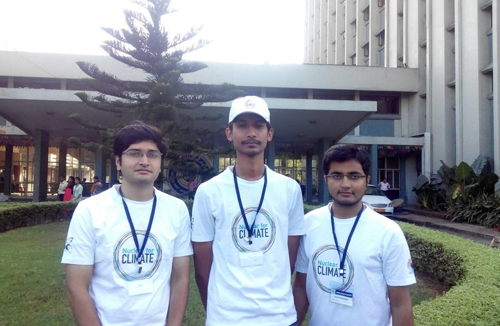
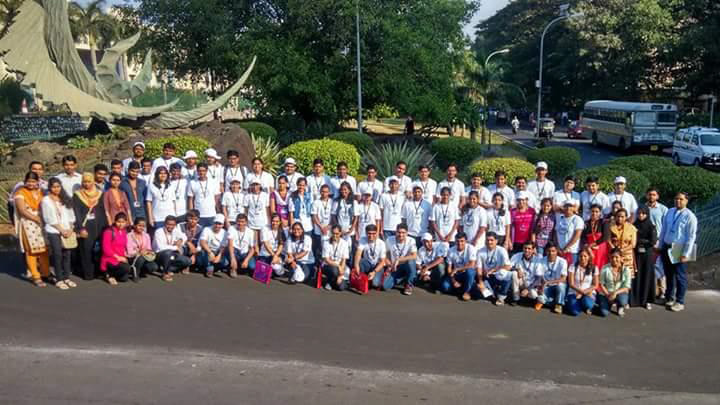
2014 Nuclear Security Training series
11 students along with 3 faculties attended the Nuclear security Training series. The training took place at three different places. They spent two weeks at Texas A&M University (Texas), One week at Sandia National Laboratory (New Mexico), One week at Oak Ridge National Laboratory (Tennessee) and finally attended the INMM Annual meeting at Atlanta (Georgia).
Visit to Texas A&M University (TAMU)
The two weeks spent in TAMU was very enlightening to the students. The Two weeks consisted of lot of lectures on Nuclear Security. Apart from the lectures the students visited various facilities of TAMU. These include the visit to TAMU’s 5W AGN reactor, 1MW TRIGA reactor and Nuclear Fuel cycle laboratories. TAMU also sponsored for a visit to NASA’s Johnson Space center at Houston, Texas during a weekend. That was so exciting to students and faculties. Students and faculties also got to know about US way of celebrating their Independence Day on July 4th. All of PDEU team visited the George Bush Memorial library and Museum on that day and enjoyed the celebration by watching the firework display.
Visit to Sandia National Laboratory (SNL)
The one week spent at SNL consisted of various lectures presented by eminent scientists working in the field of Nuclear Safety, security and Safeguards. Students also did a table top exercise on Nuclear Security which was challenging as they did it by forming different groups.
Students and faculties of PDEU went for National museum of Nuclear Science and History at Albuquerque. The museum consisted of various dummy nuclear war heads fighter jets for display. This visit was extremely exciting for everyone.
Visit to Sandia Peak as a part of sightseeing was very thrilling to everybody. The trip on the Sandia Peak Aerial Tramway transports you above deep canyons and breathtaking terrain a distance of 2.7 miles, seeing some of nature’s more dramatic beauty unfold before you. At sunset the desert skies produce a spectacular array of color, and your vantage point from the observation deck atop 10,378 foot Sandia Peak in the Cibola National Forest affords an 11,000 square-mile panoramic view of the Rio Grande Valley and the Land of Enchantment.
Visit to Oak Ridge National Laboratory
The exposure that the students have got from ORNL was amazing. There were very few lectures and lot of visits to various facilities of ORNL. PDEU students also got the opportunity to mingle with the international students from Jordon, Indonesia and Morocco who pursue Nuclear Engineering.
ORNL posses’ world’s second fastest Supercomputer, the Titan Cray XK7. PDEU students and faculties got an exciting opportunity to see it.
The X-10 Graphite Reactor at ORNL, formerly known as the Clinton Pile and X-10 Pile, was the world's second artificial nuclear reactor and was the first reactor designed and built for continuous operation. The High Flux Isotope Reactor (or HFIR) is a nuclear research reactor located at ORNL. Operating at 85 MW, HFIR is one of the highest flux reactor-based sources of neutrons for condensed matter research in the United States, and it provides one of the highest steady-state neutron fluxes of any research reactor in the world. Visits to these reactors were highly useful for both students and faculties. They also visited the Radiochemical Engineering Development center where various instrumentation viz., master-slave manipulator are employed for dealing nuclear materials at ORNL.
PDEU students and Faculties also got an opportunity to visit the beautiful campus of University of Tennessee. They also had a table top Nuclear Security exercise at University of Tennessee.
As a part of sight seeing the team had a nice time by visiting the Melton hill dam located at Oakridge. Melton Hill Dam is a hydroelectric dam on the Clinch River just south of Oak Ridge. The dam is operated by the Tennessee Valley Authority, which built the dam in the early 1960s. The dam impounds the 5,470-acre Melton Hill Lake.
Visit to 2014 INMM ANNUAL MEETING
15 students along with the 2 faculty advisors attended the 55th INMM Annual meeting at Atlanta from 20th July to 24th July. 9 papers and 1 poster were presented by the PDEU students at the annual meeting. The meeting was an excellent platform for the chapter students to interact scientists, professors and their International counter-parts.
PDEU Booth at INMM’s 55th Annual Meeting at Atlanta, Georgia, USA
PDEU INMM student chapter had a stall at the annual meeting. The purpose of the stall was to introduce the university at a global stage and to make others aware about the various activities done at the chapter. It was well appreciated by scientific community and other student chapters. PDEU students and Faculties also presented T-shirts to Texas A&M professors and officials of PNS (Partnership for Nuclear Security).
PDEU Students attended 13th ESARDA Course on Nuclear Non-proliferation and Safeguards at Chulangkorn University, Bangkok, Thailand
This compact course was open to masters degree students, in particular nuclear engineering students, but also to young professionals and International Relations / law students. It was aimed at complementing nuclear engineering studies by including nuclear safeguards in the academic curriculum. The basic aim of the course is to stimulate students’ interests in safeguards. The course addressed aspects of the efforts to create a global nuclear non-proliferation system and how this system works in practice: the Treaty on Nonproliferation of Nuclear Weapons (NPT), safeguards technology, and export control. Also regional settings, such as Euratom Treaty, are presented and discussed. Three PDEU Students along with a research staff actively participated in the course and obtained a certificate of completion.
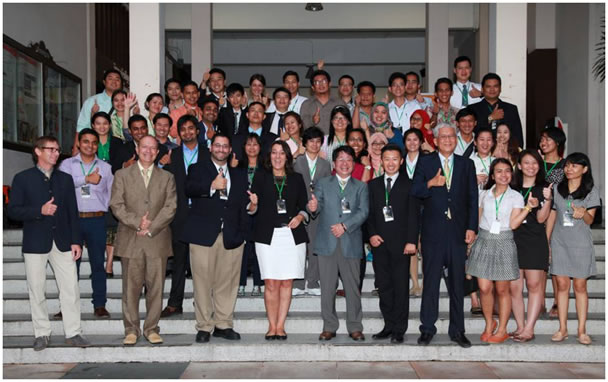
Nuclear Engineering Students Participation at PHYTRA 2014
The purpose of participation was to represent research work as well as PDEU at International Level and have an exposure to ongoing research in the field of Nuclear. By attending presentations, students learned insights of the Nuclear Engineering by listening to various talks delivered by scientists and researchers and got chance to network with various prominent scientists and scholars from International Nuclear Engineering Community.
Events
Topic : Conference and Exhibition on "Application of Nuclear Energy in Food & Agriculture, Water, Industry and Sewage treatment"
Date : 25 & 26thMarch, 2019
Topic : Application of Nuclear Technology in Food and Agriculture
Speaker : Dr. A K Sharma, Professor and Head of Food Engineering Department, Anand Agricultural University
Date : 24th February, 2019
Summary : Dr. A K Sharma has visited Department of Nuclear Science and Technology, Pandit Deendayal Energy University, Gandhinagar on 24th Frebruary, 2019 and delivered a guest lecture on “Application of Nuclear Technology in Food and Agriculture”. Dr.Sharma is presently Professor and Head of Food Engineering Department at AnandAgriculture University, Anand (Gujarat). He covered working principlesand dose determination for radiation processing of food products. He also discussed about Radiation induced mutation for high yield seeds, crop development and shelf-life extension.
Topic : Plasma Physics and Nuclear Fusion
Speaker : Dr. C. V. S. Rao
Date : 20th November, 2018
Summary : Dr. C. V. Srinivasa Rao has visited Department of Nuclear Science and Technology, Pandit Deendayal Energy University, Gandhinagar on 20th November, 2018 and delivered a guest lecture on “Plasma Physics and Nuclear Fusion“. Dr. Rao has retired fromInstitute for Plasma Research (IPR), Gandhinagar. He was working in the field of experimental Tokamak physics and development various diagnostic systems for characterizing Tokamak plasmas. During his talk, he discussed about plasma science and overview on ITER related experiments. He briefed about the Plasma Confinement, Magnetic Configurations, Fusion Experimental Reactor, Overall plant design parameters, Fusion Experimental Reactor: Operation modes - Vacuum vessel and shield. His talk gave an exposure to the students about the Superconducting magnet system and cryostat vessel -Fuel cycle systems, Plasma facing components (Blanket, Divertor), Safety criteria and assessment, waste disposal, Overview on Magnetically Confined Fusion Facilities around the world.

Topic : Fusion Power
Speaker : Dr.Dhiraj Bora –Director IPR and ITER, Dr.C.V.SRao, Head - Plasma diagnostics group
Date : 30th October
Summary : Department Of Nuclear Science and Technology invited two eminent scientists from Institute for Plasma Research on October 30th to deliver Lecture. Dr. Dhiraj Bora, who is director of IPR and ITER delivered a talk on “Research opportunities for students at IPR and ITER” and Dr. C. V. SRao who is the head of Plasma diagnostics group delivered a lecture on “Fusion power”. This is called energy of future. These two lectures were aimed at bringing research opportunities for our P.G Students not only restricted to Nuclear Engineering but also on other disciplines such as Electrical and Mechanical.
Topic : Non Proliferation Regime & International Safeguard’s System
Speaker : Mr. Claudio A. Gariazzo
Date : 29th Jan, 2015
Summary : Department of Nuclear Science and Technology Engineering and IR department of SLS, PDEU have collaboratively organized an interactive talk on Non Proliferation Regime & International Safeguard’s System, a part of PDEU-INMM student chapter’s activity. This informative lecture was given on 29th Jan, 2015. The lecture was conducted special for students who have taken Policy making is their major subject in the final year. So, it was first time in the PDEU-INMM student chapter history, that both Technical and Non-technical student clubbed together for the lecture. Mr. Claudio Gariazzo, who is currently associate research engineer at Nuclear Security Science & Policy Institute, Texas A & M University, USA, had enhanced the knowledge of students by sharing his valuable knowledge.
Mr. Claudio Gariazzo will speak on the International Nuclear Materials Safeguards System (its history, objectives, implementation, global reach, and legality) under the International Atomic Energy Agency as well as how the current Nuclear Nonproliferation Regime is affected by the recently-settled (controversial) US-India nuclear deal. The students were very enthusiastic during the session of questions which was happened after the impressive presentation. School of liberal studies has shown their interest to organize some more activities similar like this.
Topic : “Human Resource Development for Nuclear Power” at India Nuclear Summit 2014 in Mumbai, India
Speaker : Dr. Balamurli K. Mayya, Associate Professor at Department of Science, School of Technology, PDEU
Date : 2014
Summary : Associate Professor at Department of Science, School of Technology, PDEU, Dr. Balamurli K. Mayya was invited to be a part of panel discussion deliberating on “Human Resource Development for Nuclear Power”. Division Heads/Deans of various DAE entities like NPCIL, IGCAR etc. were part of the panel. The discussion was moderated by Prof. Kannen Iyer, IIT Bombay. The Panel members deliberated on the training infrastructure currently available at various DAE facilities and their current initiatives.
Dr. Mayya briefed the panel members about the Nuclear Engineering program at PDEU by highlighting the advantages in terms of curriculum, facilities provided to students, and opportunities in International exposure/Industrial training. He also emphasized up on the issues which have been faced by PDEU in terms of Placement of M.Tech graduates, in setting up of sophisticated labs and lack of qualified faculty with Ph.D. degree in Nuclear Engineering.
News Archive
| 15 Nov, 2017 | A guest lecture on “Nuclear Safety and Electricity Generation at Lower Cost” by Prof. Palvannanathan Ganesan, Director UNMC, USA |
| 1 Feb, 2017 | Debate on Public Acceptance of Nuclear Energy in India |
| 6 Jan, 2017 | Tarapur Nuclear Power Plant Visit |
| 2 Jan, 2017 | Uranium Mines Visit |
| 7 Dec, 2016 | Gujarat Agro Visit |
| 22 Aug, 2017 | Guest Lecture Dr. Manit Shah |
| 22 Aug, 2017 | Distinguished Speaker Lecture |
International & National Visitor
|
Dr. Sunil Sunny Chirayath |
|
Dr. Craig Marianno |
|
Dr. Sukesh Aghara |
|
Mr. Daniel Miller |
|
Ms. Priya Sethi |
|
Dr. B. K. Dutta |
|
Prof. D. Bora |
|
Dr. S. K. Malhotra |
|
Dr. M. SaiBaba |
|
Mr. Indravadan Dulera |
|
Mr. L. K. Jain |
|
Mr. Ganesh Iyer |
|
Dr. Shafi Quereshi |
|
Dr. Shafi Quereshi |
|
Dr. Robert Finch |
|
Mr. K. Jayarajan |
|
Dr. J. Velmurugan |
|
Dr. A. K. Nayak |











